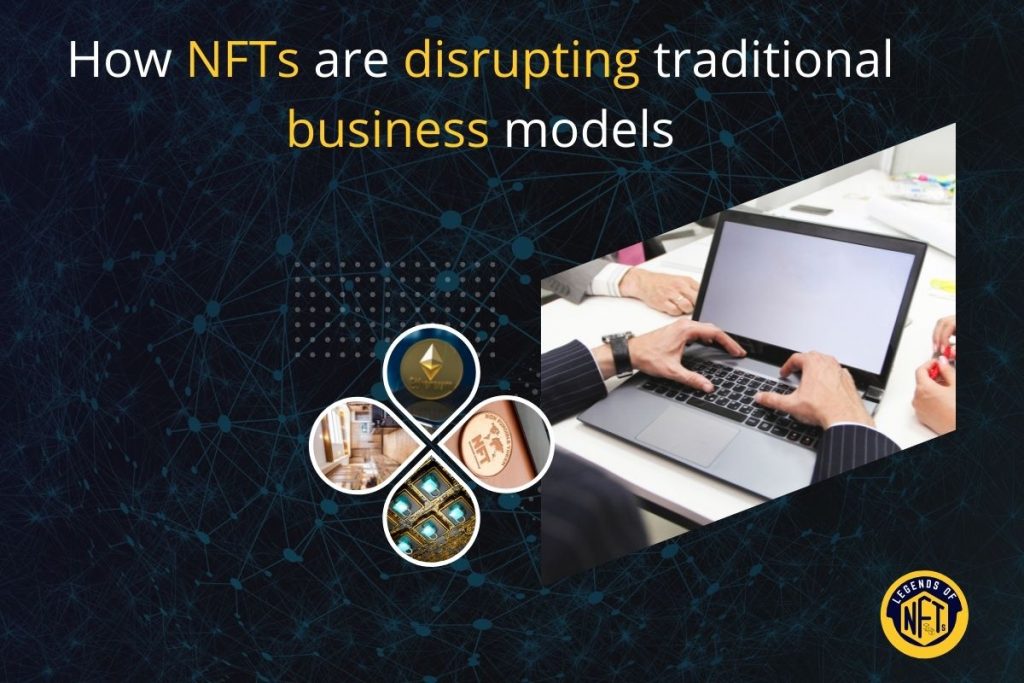In the past, businesses could rely on the fact that customers were largely loyal to them and would stick with the same company for years. However, in today’s digital age, customers are much more likely to switch services or products if they can find a better deal elsewhere. This is due to the availability of options online, as well as the increased transparency of businesses thanks to social media. As a result, traditional business models are being disrupted by new technologies that allow for more flexibility and ownership transferability, such as NFTs. Before going into deep research let’s take a look at which type of challenges businessmen face when choosing NFTs.
Redefining traditional business models
With the rise of digital technologies, businesses are increasingly looking for ways to redefine their models. One trend that has gained traction in recent years is the use of NFTs, or non-fungible tokens. NFTs are digital assets that are stored on a blockchain and can take many different forms. For businesses, NFTs offer a number of advantages.
- First, they provide a way to create unique and scarce digital products. This can be especially valuable for businesses that deal in digital art or collectibles.
- Second, NFTs can help businesses to build closer relationships with their customers. By allowing customers to own a piece of your business, you create a deeper level of engagement and connection.
- Finally, NFTs provide a new revenue stream for businesses. As the NFT market continues to grow, there will likely be more opportunities for businesses to experiment with this exciting new technology.
What are some of the challenges businesses face when using NFTs?
There are a number of challenges that businesses can face when using NFTs, including the difficulty of integrating these new technologies into existing systems and processes, the increased transparency and accountability required with these decentralized platforms, and challenges related to security and trust. Additionally, many businesses may be hesitant to adopt NFTs due to concerns about volatility or regulatory uncertainty, and there may be a lack of skilled developers or other resources that can help businesses effectively utilize these technologies.
Despite these challenges, NFTs offer a number of potential advantages for businesses, including the ability to create new revenue streams, increase customer engagement, and drive innovation. As the technology continues to evolve, it is likely that more businesses will begin to explore how NFTs can be used to achieve their goals.
How can businesses use NFTs to their advantage?
There are a number of ways businesses can use NFTs to their advantage, including creating new revenue streams, increasing customer engagement, and driving innovation. For example, businesses can create and sell NFTs that represent digital goods or services, which can be used to monetize online content or experiences.
Additionally, businesses can use NFTs to increase customer engagement by offering rewards or incentives that are tied to specific actions or goals. Finally, businesses can use NFTs to drive innovation by funding research and development projects or exploring new business models that are based on the technology.
Are there any potential risks associated with using NFTs for business purposes?
There are a number of potential risks associated with using NFTs for business purposes.
Risk Associated
- includes the possibility of fraud or theft.
- the volatility of the market.
- the uncertain regulatory environment.
Additionally, businesses may face reputational risks if they are perceived to be taking advantage of customers or employees, or if they are seen as being too risky or experimental.
How will the use of NFTs impact traditional business models in the future?
There is no clear consensus on how the use of NFTs will impact traditional business models in the future. Some experts believe that these technologies could disrupt existing models by allowing companies to more effectively manage their assets and tap into new revenue streams, while others warn that they may create additional challenges and uncertainties for businesses. However, it seems likely that the use of NFTs will continue to grow in the coming years, and it will be interesting to see how these technologies impact the business world.
Conclusion
The use of NFTs is still in its early stages, and it remains to be seen how these technologies will impact traditional business models. However, there are a number of potential advantages that businesses can take advantage of, including the ability to create new revenue streams, increase customer engagement, and drive innovation. Additionally, there are some risks associated with NFTs, including issues related to security and trust, regulatory uncertainty, and market volatility. As the technology continues to evolve and more businesses begin to explore its potential applications, it will be interesting to see how NFTs will impact the business world in the years ahead.





